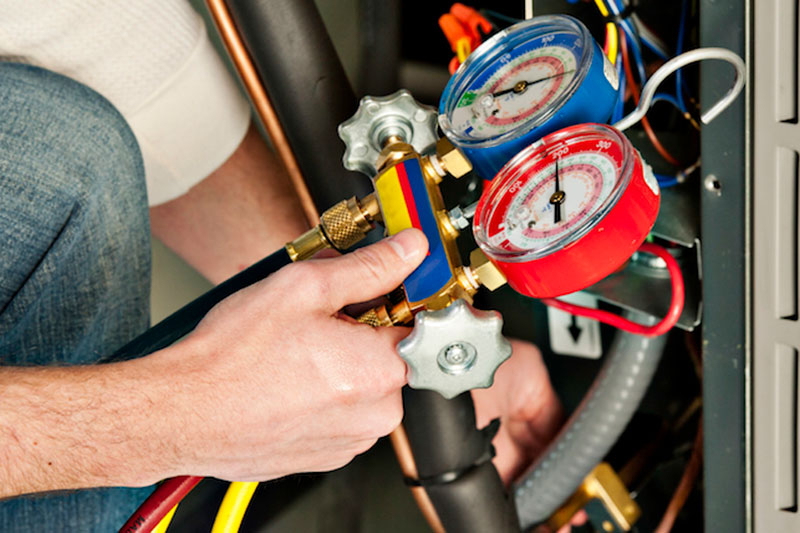
You might not think often about how your air conditioner operates, but it requires refrigerant to keep your house cold. This refrigerant is bound by environmental laws, as it contains chemicals.
Subject to when your air conditioner was installed, it may need R-22, R-410A or R-32 refrigerant. We’ll discuss the differences and which air conditioner refrigerants are being phased out in Corpus Christi, in addition to how these phaseouts affect you.
What’s R-22 and Why Is It Phased Out?
If your air conditioner was installed before 2010, it possibly uses Freon®. You can find out if your air conditioner contains it by reaching us at 361-446-6925. You can also examine the name plate on your air conditioner condenser, which is found outside your home. This sticker will include info on what kind of refrigerant your AC uses.
Freon, which is also known as R-22, has chlorine. Scientists consider Freon to be damaging to the earth’s ozone layer and one that leads to global warming. The Environmental Protection Agency, which controls refrigerants in the United States, banned its production and import in January 2020.
I Use an Air Conditioner with R-22. Do I Need to Get a New One?
It depends. If your air conditioning is cooling properly, you can continue to run it. With yearly air conditioner maintenance, you can expect your air conditioning to last around 15–20 years. However, the Department of Energy notes that substituting a 10-year-old air conditioner could save you 20–40% on summertime cooling costs!
If you don’t install a new air conditioner, it can lead to difficulties if you need air conditioning repair later on, specifically for refrigerant. Repairs can be more expensive, as only limited levels of recycled and reclaimed R-22 is available.
With the end of R-22, many new air conditioners now rely on Puron®. Also called R-410A, this refrigerant was created to keep the ozone layer healthy. As it needs a varying pressure level, it isn’t compatible with air conditioners that use R-22 for cooling.
However, Puron still has the potential to create global warming. As a consequence, it could also ultimately be ended. Although it hasn’t been disclosed yet for residential air conditioners, it’s likely sometime this decade.
What Refrigerant Will Take Over R-410A?
In preparation of the end, some brands have started using R-32 in new air conditioners. This refrigerant ranks low for global warming likelihood—around one-third less than R-410A. And it also decreases energy use by about 10%, according to the Intergovernmental Panel on Climate Change’s Fourth Assessment Report. That’s savings that may be passed on to you through your energy costs.
Total Assurance AC & Heating Can Assist with All Your Air Conditioning Needs
In summary, the alterations to air conditioner refrigerant probably won’t concern you very much until you have to have repairs. But as we went over earlier, refrigerant-related repairs might be pricier because of the restricted levels on hand.
In addition to that, your air conditioner often stops working at the worst time, frequently on the muggiest day when we’re experiencing many other requests for AC repair.
If your air conditioner uses a discontinued refrigerant or is getting old, we recommend getting a modern, energy-efficient air conditioner. This delivers a stress-free summer and could even lower your cooling expenses, especially if you get an ENERGY STAR®-rated model. Plus, Total Assurance AC & Heating has many financing solutions to make your new air conditioner fit your budget. Contact us at 361-446-6925 to begin right away with a free estimate.

